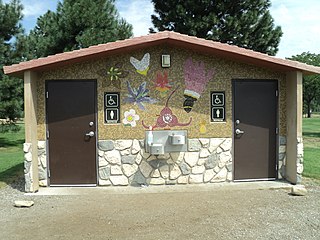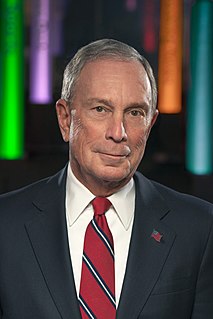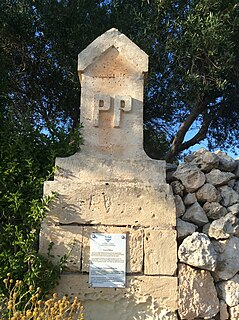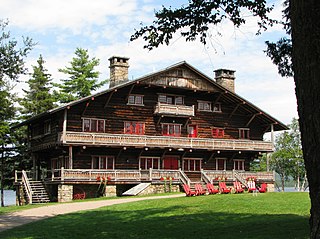Privatization of public toilets is an ongoing process in the United States and other countries. Police (e.g. in Los Angeles) have sometimes supported their privatization, claiming that public toilets are "crime scenes" that attract illegal activity.[ citation needed ]
Privatization can mean different things including moving something from the public sector into the private sector. It is also sometimes used as a synonym for deregulation when a heavily regulated private company or industry becomes less regulated. Government functions and services may also be privatized; in this case, private entities are tasked with the implementation of government programs or performance of government services that had previously been the purview of state-run agencies. Some examples include revenue collection, law enforcement, and prison management.

A public toilet is a room or small building with toilets that does not belong to a particular household. Rather, the toilet is available for use by the general public, customers, travellers, employees of a business, school pupils, prisoners etc. Public toilets are commonly separated into male and female facilities, although some are unisex, especially for small or single-occupancy public toilets. Increasingly, public toilets are accessible to people with disabilities. Public toilets are known by many other names depending on the country. Examples are: restroom, bathroom, men's room, women's room in the US, washroom in Canada, and toilets, lavatories, water closet (W.C.), ladies and gents in Europe.
A criticism of toilet privatization is that it results in the denial of a basic service to the urban poor. [1] In southern California in the 1980s, authorities consciously reduced the number of public toilets to make certain areas less attractive to "undesirables". [2]
In some cases, partial privatization of the toilet system takes place in the form of vendors supplying the service in exchange for advertising rights. Mayor of New York City Michael Bloomberg described such a deal as a "unique opportunity to...creat[e] a vibrant and aesthetically pleasing streetscape…without the burden of public investment." [3]

The Mayor of the City of New York is head of the executive branch of the Government of New York City. The mayor's office administers all city services, public property, police and fire protection, most public agencies, and enforces all city and state laws within New York City.

Michael Rubens Bloomberg KBE is an American businessman, politician, author, and philanthropist. As of April 2019, his net worth was estimated at $62.1 billion, making him the 6th-richest person in the United States and the 9th richest person in the world. He has joined The Giving Pledge, whereby billionaires pledge to give away at least half of their wealth. To date, Bloomberg has given away $8.2 billion, including his November 2018 $1.8 billion gift to Johns Hopkins University for student aid — the largest private donation ever made to a higher education institution.
John Stossel points out that private property may be better taken care of than public property: "Think about shared public property, like public toilets. They're often gross...Compare dirty public toilets to privately run toilets. They're common in Europe, and cleaner, because their owners – selfishly seeking a profit – work at keeping them clean." [4]

John Frank Stossel is an American consumer television personality, author, and libertarian pundit, known for his career on both ABC News and Fox Business Channel.

Private property is a legal designation for the ownership of property by non-governmental legal entities. Private property is distinguishable from public property, which is owned by a state entity; and from collective property, which is owned by a group of non-governmental entities. Private property can be either personal property or capital goods. Private property is a legal concept defined and enforced by a country's political system.
Public property is property that is dedicated to public use and is a subset of state property. The term may be used either to describe the use to which the property is put, or to describe the character of its ownership. This is in contrast to private property, owned by an individual person or artificial entities that represent the financial interests of persons, such as corporations. State ownership, also called public ownership, government ownership or state property, are property interests that are vested in the state, rather than an individual or communities.











